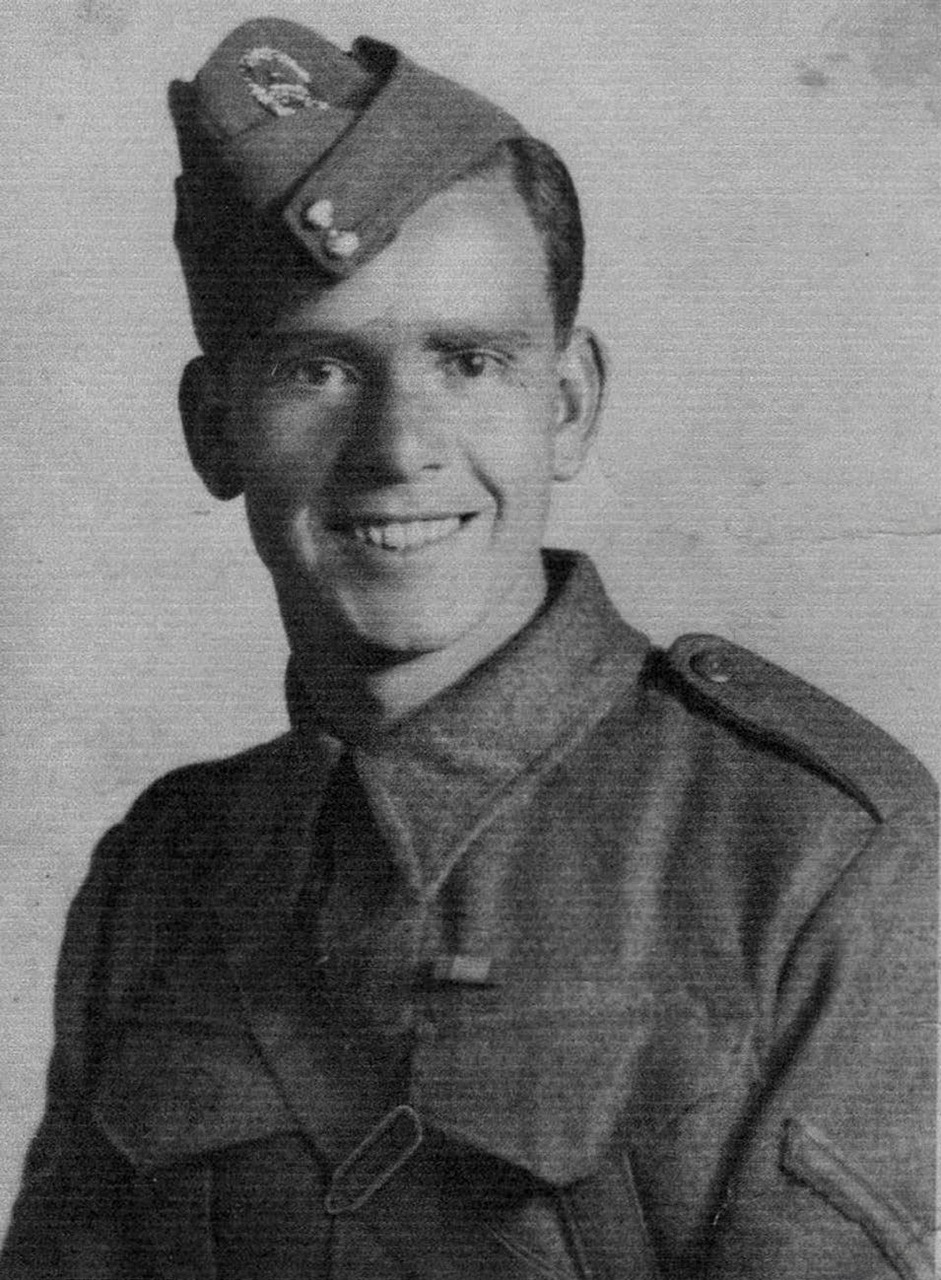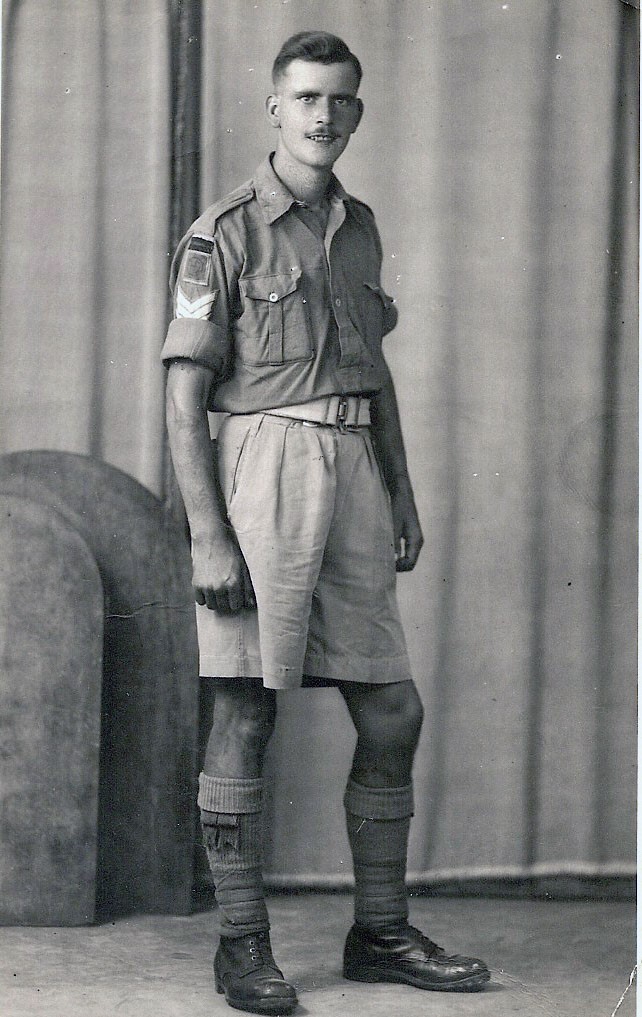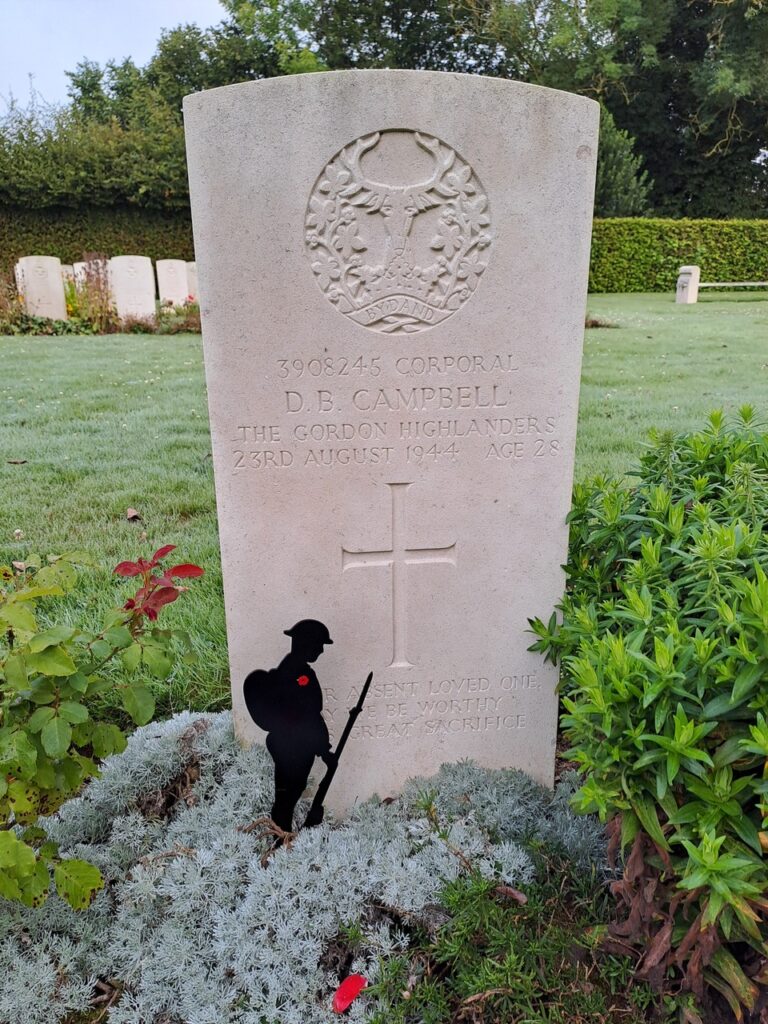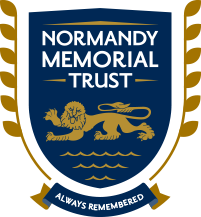
David Birkmyre Campbell
This story and photos are shared by the Trust with kind permission from John Campbell, nephew of David Campbell
David Birkmyre Campbell was born on 19th March 1916 in the village of Tullibody, near Alloa, in Clackmannanshire, Scotland. He was one of twelve children, the fourth son of William and Margaret Campbell, raised in a tight-knit family during a time of global uncertainty.
The family worked as farm hands, his mother Margaret was a milk-maid and his father William worked as a carter. His duties involved not only driving the cart but also managing the horses on the farms. They found work on a number of farms across west central Scotland. And the children moved to various schools near these farms. In 1928, they settled in Clydebank, a town in Dunbartonshire, just west of Glasgow.
As a young man, David chose a path of service, enlisting in the British Army around 1933 and beginning his military career with the South Wales Borderers. He relocated to South Wales and, apart from occasional periods of leave to visit his parents and siblings in Scotland, he spent most of his short life there. He was stationed in India with the 1st Battalion during the 1936-37 North-West Frontier campaign.
His time in the forces coincided with one of the most turbulent periods in modern history — the Second World War. Of David’s brothers, two served in the Navy and two others in the Army during the Second World War. The family in Clydebank did not escape the war either. During the German air raids on the nights of March 13 and 14, 1941, the family home — along with much of the town — was destroyed. Remarkably, the family escaped without injury, though they lost all of their possessions in the devastation, and were relocated to a tenement in nearby Yoker.
During the war, David transferred to the 1st Battalion, Gordon Highlanders, which had been reconstituted after heavy losses during the campaign in France in 1940. Serving as part of the famed 51st (Highland) Infantry Division, he took part in some of the most critical operations of the war.
David saw action in North Africa, including the pivotal battles of El Alamein, Tunisia, and later in the gruelling campaign through Italy.

David in North Africa, early 1942
After those campaigns, his battalion returned to Great Britain to prepare for what would become one of the most significant operations of the war — the D-Day landings.
On 6th June 1944, David and his battalion departed the south coast of England, meeting other Allied ships at a rendezvous point south-east of the Isle of Wight — an area nicknamed "Piccadilly Circus." From there, they crossed the Channel to land on the Normandy coast. The 1st Battalion came ashore late on D-Day at the western edge of Juno Beach near Graye-sur-Mer, where they landed without opposition.
Their mission soon took them eastward, towards Pegasus Bridge, to help secure the area against potential German counter-attacks. What followed was a prolonged struggle in the countryside surrounding the city of Caen. For two months, the 1st Battalion engaged in fierce combat east of the Orne River, enduring relentless resistance as they fought to liberate small but strategically vital hamlets such as Touffreville, Bréville, Escoville, Hérouvillette, and Colombelles.
Though territorial gains were limited, their efforts were instrumental in tying down German forces, preventing them from reinforcing positions in Caen or further west along the front.
By late August 1944, the battalion had been in continuous action and were suffering from reduced numbers. On 22nd August, they were held in reserve near La Bosquetterie as other battalions attempted to take the village of Lisieux. However, the intensity of the German defence — from troops of the fanatical Hitlerjugend SS Division — necessitated their return to action.
On 23rd August 1944, while advancing with tank support towards high ground near Lisieux, David and his comrades were caught in a deadly crossfire from pre-positioned German Spandau machine guns. He was killed in action that day, alongside 19 others from his battalion.
David Birkmyre Campbell now lies at rest in the Saint-Désir War Cemetery in Calvados, France — a peaceful place far from his Scottish home, among comrades who made the same ultimate sacrifice.

David's death left his family and his widow to mourn his loss. He had married Una Davies in Bridgend, Glamorgan, Wales in 3rd quarter of 1940. They never had any children that we know off, and after David's death the family lost touch with her. We believe that after the war Una remarried and, prior to this wedding, she asked David's parents if they had any objections.
David’s memory lives on in the hearts of his family.
FALLEN HEROES
DAVID BIRKMYRE CAMPBELL
Army • CORPORAL
Gordon Highlanders
1st BattalionDIED | 23 August 1944
AGE | 28
SERVICE NO. | 3908245
FALLEN HEROES
DAVID BIRKMYRE CAMPBELL
Army • CORPORAL
Gordon Highlanders
1st BattalionDIED | 23 August 1944
AGE | 28
SERVICE NO. | 3908245







